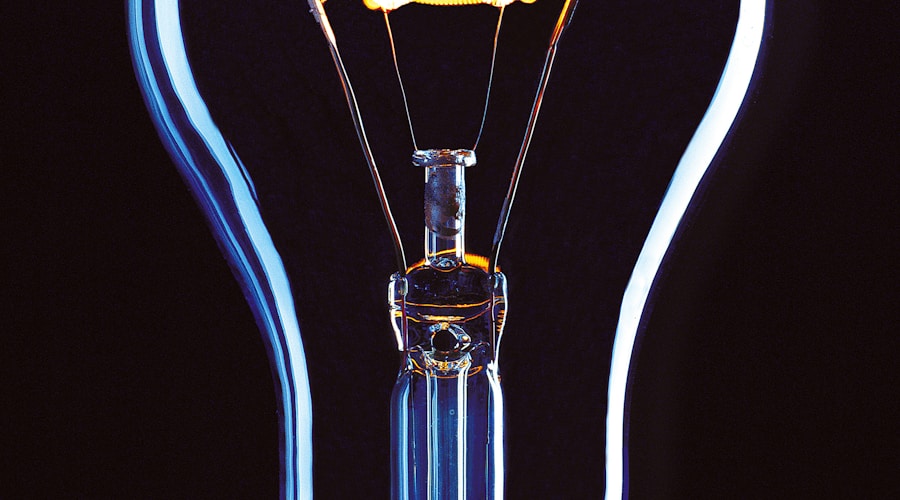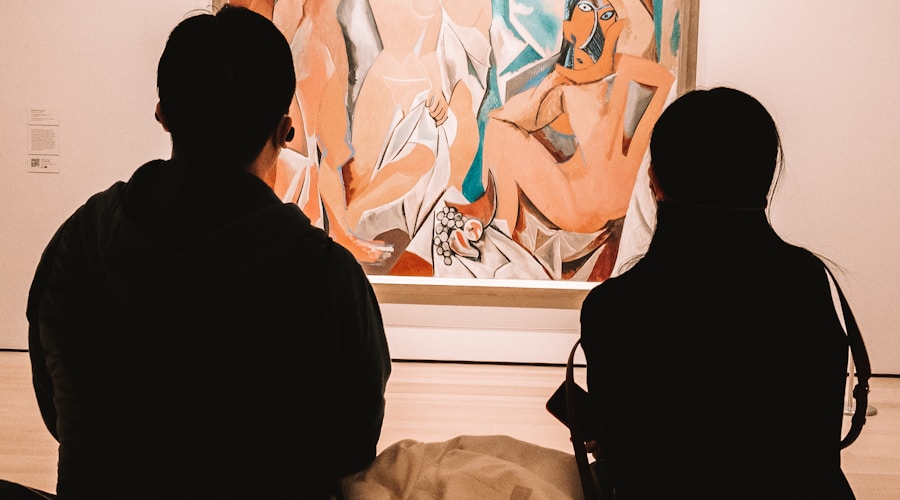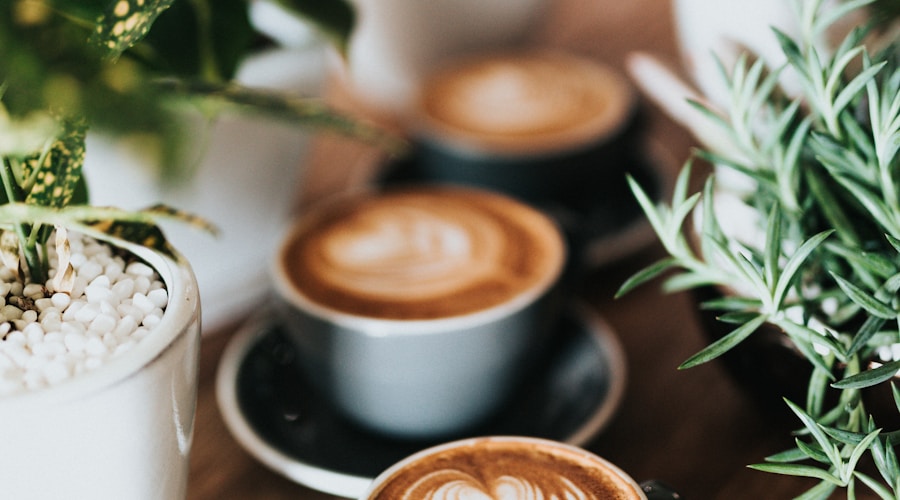Do you ever wonder how sleep and creativity are connected? Imagine a world where your dreams become the fuel for your imagination and innovative ideas. In this article, we will explore the intricate relationship between sleep and creativity. Whether you're an artist, writer, entrepreneur, or simply someone who enjoys thinking outside the box, understanding this connection may just unlock a whole new level of creative potential. Join us on this journey as we delve into the fascinating world of sleep and its profound impact on our ability to think creatively.
Understanding the Connection Between Sleep and Creativity
Sleep and creativity have a profound and intricate relationship. Research has shown that getting quality sleep can significantly enhance your creative thinking abilities1 . In fact, numerous studies have confirmed that a well-rested mind is more likely to generate innovative ideas and solutions2 .
The connection between sleep and creativity lies in the brain's ability to consolidate and connect information during sleep3 . When you sleep, your brain goes through different stages, including deep sleep and rapid eye movement (REM) sleep. During these stages, the brain strengthens neural connections and processes the information it has received throughout the day, making it easier for you to retrieve and combine ideas when you wake up4 .
Renowned creative minds have also emphasized the importance of sleep in their creative process. Thomas Edison, the inventor of the lightbulb, once said, "Never go to sleep without a request to your subconscious," highlighting the role of sleep in accessing the subconscious mind where creativity flourishes5 .

How Quality Sleep Fuels Creative Thinking
Good quality sleep is not only essential for your overall health and well-being but can also have a profound impact on your creative thinking. When you get enough restful sleep, you give your brain the opportunity to recharge and rejuvenate, allowing it to function optimally. This optimal brain function is crucial for fostering creativity in your life.
During sleep, your brain repairs and consolidates memories, processes emotions, and clears out toxins. It also strengthens connections between different brain regions, which are important for creative thinking. Dr. Erin Cvejic, a sleep psychologist, explains, "During sleep, your brain gets to work on integrating information and experiences from the day, making connections, and finding alternative solutions."
In fact, research has shown that sleep plays a vital role in the creative problem-solving process. A study published in the journal Sleep demonstrated that individuals who had a full night's sleep were better at solving complex problems that required creative insight compared to those who were sleep-deprived. The brain's ability to make new associations and connections is enhanced when well-rested, leading to increased creativity.
Adequate sleep also improves cognitive functions such as attention, concentration, and mental agility, which are essential for creative thinking. When you are well-rested, you can focus better on your creative tasks, generate new ideas, and find innovative solutions to problems. On the other hand, when you are sleep-deprived, your cognitive abilities are impaired, making it difficult to think creatively.
According to Dr. Michael Breus, a sleep specialist and author, "When you're not sleeping well, your brain essentially runs out of steam, and it's much harder to access creative centers of the brain." Lack of sleep can lead to mental fatigue, decreased motivation, and reduced ability to come up with original and imaginative ideas.
To fully harness your creative potential, it is crucial to prioritize and optimize your sleep. Here are some practical tips to help you fuel your creative thinking through better sleep:
Establish a consistent sleep schedule: Try to go to bed and wake up at the same time every day, even on weekends. This helps regulate your body's internal clock and promotes a healthy sleep-wake cycle.
Create a bedtime routine: Engage in relaxing activities before bed, such as reading a book, taking a warm bath, or practicing mindfulness meditation. These activities signal to your brain that it's time to wind down and prepare for sleep.
Create a sleep-friendly environment: Make your bedroom a sanctuary for restful sleep. Keep the room cool, dark, and quiet. Use comfortable bedding and invest in a supportive mattress and pillow.
Limit exposure to electronic devices: The blue light emitted by screens can interfere with your sleep-wake cycle. Avoid using electronic devices, such as smartphones and laptops, for at least an hour before bed. Instead, engage in calming activities like reading or listening to soothing music.
Avoid stimulants: Refrain from consuming caffeine, nicotine, and alcohol close to bedtime. These substances can disrupt your sleep patterns and affect the quality of your sleep.
By prioritizing and optimizing your sleep, you are giving yourself the best chance to unlock your creative potential. As Dr. Breus succinctly puts it, "The synapses in your brain are firing better when you have good sleep, and that means you're able to come up with more outside-of-the-box ideas and solutions."
So, next time you find yourself struggling with a creative block or looking for inspiration, remember that a good night's sleep might be just what you need to fuel your creative thinking.
Dreaming: The Subconscious Playground of Creativity
Dreams have long been a source of inspiration for creative individuals. They offer a glimpse into our subconscious mind, tapping into a world of untapped ideas, emotions, and images. In the realm of dreams, our imagination knows no bounds.
According to psychologist and dream expert, Carl Jung, dreams are a rich source of creativity. He once said, "Your dreams are a window into your creative self. They provide a bridge to your unconscious mind, where creativity flourishes."
During dreaming, our brain engages in a process called "synaptic pruning," where unnecessary connections are eliminated, while important ones are strengthened. This helps to consolidate memories, emotions, and experiences, all of which play a crucial role in creative thinking.
Dreams often present us with vivid and abstract imagery, which can be a treasure trove of creative inspiration. They enable us to explore new ideas, concepts, and perspectives that we might not have considered in our waking state. In the dream world, our thoughts flow freely, unburdened by the constraints of logic and reality.
One famous example of a dream-inspired creation is the iconic song "Yesterday" by The Beatles. Paul McCartney reportedly dreamt the melody and lyrics for the song, which went on to become one of their greatest hits.
Dreams can also help us solve problems and find innovative solutions. The late inventor and entrepreneur, Steve Jobs, once said, "Creativity is just connecting things. When you ask creative people how they did something, they feel a little guilty because they didn't really do it, they just saw something. It seemed obvious to them after a while."
This notion of "seeing something" is often attributed to the power of our dreams. Dreams can provide us with new perspectives and insights that we may not have been able to access consciously. They can help us break free from the limitations of our everyday thinking and unlock our creative potential.
Lucid dreaming, a state in which we become aware that we are dreaming while still in the dream, takes this concept even further. It allows us to actively participate and manipulate our dream environment. This unique experience can be a playground for creativity, as we can consciously explore different ideas, scenarios, and possibilities.
In conclusion, dreams provide us with a subconscious playground of creativity. They allow us to tap into our deepest thoughts and emotions, igniting our imagination and inspiring us to think outside the box. So the next time you wake up from a dream, take a moment to reflect on its hidden gems. You never know what extraordinary ideas may be waiting to be unearthed. As the poet Edgar Allan Poe once said, "Those who dream by day are cognizant of many things which escape those who dream only by night."

Negative Impacts: How Sleep Deprivation Affects Creativity
Lack of adequate sleep can have a profound impact on your creative abilities. When you regularly deprive yourself of sleep, you reduce your brain's capacity to think creatively and generate new ideas.
According to neuroscientist Matthew Walker, "Sleep loss dramatically blunts our ability to receive input from the outside world and connect it to what we already know." In other words, when you are sleep deprived, your brain struggles to process information and make connections, which are crucial for creative thinking.
One of the key negative impacts of sleep deprivation on creativity is the impairment of divergent thinking - the ability to generate many different ideas. A study published in the journal Sleep showed that participants who had a full night of sleep were more effective at finding creative solutions to problems compared to those who were sleep deprived.
Additionally, sleep deprivation can lead to an overactive amygdala, the part of the brain that regulates emotions. This overactivity can hinder your creative flow and make it difficult to think outside the box. As Jennifer E. McCabe, a psychology professor, explains, "Emotional regulation and creativity are intertwined. Sleep-deprived individuals may have more difficulty regulating their emotions, which can interfere with their ability to think creatively".
Another negative impact of sleep deprivation on creativity is the decrease in attention span and cognitive abilities. When you are sleep deprived, you may find it harder to concentrate and focus on tasks, making it challenging to engage in creative endeavors that require sustained attention.
Furthermore, research has shown that sleep deprivation can affect your ability to make connections between seemingly unrelated concepts. A study conducted at the University of California, Berkeley, found that sleep-deprived individuals had a reduced ability to make remote associations between words, a critical aspect of creative thinking.
The negative impacts of sleep deprivation are not limited to your creative abilities but can also have broader consequences on your overall health and well-being. Chronic sleep deprivation has been linked to various health problems, including increased risk of obesity, cardiovascular disease, and mental health disorders such as depression and anxiety, which can further hamper your creative potential.
In conclusion, sleep deprivation can severely hinder your creativity by impeding your cognitive abilities, attention span, and emotional regulation. It limits your brain's capacity to process information, make connections, and think divergently. To unleash your creative potential, it is crucial to prioritize quality sleep and ensure you give your brain the rest it needs to thrive.
Case Studies: Famous Creators and Their Sleep Habits
Have you ever wondered about the sleep habits of famous creators? It's intriguing to discover how these influential figures balanced their busy lives with the need for quality sleep. Let's take a look at some notable examples:
1. Leonardo da Vinci: Known as one of history's greatest polymaths, Leonardo da Vinci was well-aware of the importance of sleep. He followed a polyphasic sleep schedule, which involved taking several short naps throughout the day. This allowed him to maximize his waking hours and indulge in uninterrupted creative flow.
2. Nikola Tesla: The brilliant inventor Nikola Tesla famously claimed to only need two hours of sleep per night. His exceptional productivity and ability to concentrate were admired by many. However, while Tesla may have been an outlier, it's important to note that such minimal sleep requirements are extremely rare and not recommended for the general population.
3. Salvador Dalí: Renowned for his surrealist art, Salvador Dalí practiced a sleep technique called "slumber with a key." He would sit in a chair, holding a key in his hand over a metal plate. As he drifted off to sleep, the key would fall and make a noise, waking him up and allowing him to capture the dreamlike images that often inspired his artwork.
4. Maya Angelou: The celebrated poet and writer Maya Angelou prioritized her sleep and recognized its crucial role in her creative process. She once said, "A lack of sleep, more than anything, almost destroyed my creativity. I cannot survive without sleep". Angelou's words serve as a reminder that even the most talented individuals cannot thrive creatively without sufficient rest.
These case studies highlight the diverse approaches to sleep that famous creators have adopted. It's clear that each individual has their own unique sleep pattern that best suits their creative needs. While some, like da Vinci and Dalí, experimented with alternative sleep schedules, others emphasized the importance of getting enough sleep, like Maya Angelou.
Understanding these different sleep habits can help us see that there is no "one-size-fits-all" approach to sleep and creativity. As you explore your own sleep habits and creative process, remember to prioritize both rest and inspiration. After all, achieving a good balance between the two is the key to unlocking your creative potential.

Practical Tips for Enhancing Creativity Through Better Sleep
Having understood the crucial connection between sleep and creativity, it's time to explore practical tips to enhance your creative abilities through better sleep. By prioritizing sleep and adopting healthy sleep habits, you can harness the power of quality sleep to unlock your full creative potential.
Establish a Consistent Sleep Routine: Set a regular sleep schedule to align your body's natural sleep-wake cycle. Going to bed and waking up at the same time every day will help regulate your circadian rhythms, allowing you to experience more optimal sleep.
Create a Sleep-Friendly Environment: Your sleep environment plays a significant role in the quality of your rest. Make sure your bedroom is cool, dark, and quiet to promote uninterrupted sleep. Consider using earplugs, eye masks, or white noise machines to block out any disturbances.
Unwind Before Bed: Engage in relaxing activities before bedtime to signal to your body and mind that it's time to wind down. This could include reading a book, taking a warm bath, practicing meditation or deep breathing exercises, or listening to calming music. Avoid stimulating activities, such as watching TV or using electronic devices, as the blue light emitted can interfere with your sleep.
Limit Caffeine and Alcohol: Consuming caffeine and alcohol close to bedtime can disrupt your sleep patterns. Caffeine is a stimulant that can keep you awake, while alcohol can interfere with the quality of your sleep. Try to minimize or avoid consuming these substances before bed.
Exercise Regularly: Engaging in physical activity during the day can improve the quality of your sleep. Exercise helps to reduce stress, release endorphins, and tire your body, allowing you to fall asleep more easily and enjoy deeper sleep. Aim for at least 30 minutes of moderate exercise, such as walking, cycling, or swimming, most days of the week.
Manage Stress and Anxiety: High levels of stress and anxiety can disrupt your sleep and hinder creative thinking. Incorporate stress-reducing techniques, such as mindfulness, journaling, or talking to a supportive friend or therapist. By managing stress, you can create a peaceful mindset that is conducive to quality sleep and enhanced creativity.
Avoid Heavy Meals Before Bed: Eating heavy or spicy meals too close to bedtime can cause indigestion and discomfort, making it difficult to fall asleep. Opt for light, balanced meals in the evening and avoid consuming food or beverages that may cause heartburn or disrupt your sleep.
Seek Help for Sleep Disorders: If you suspect you have a sleep disorder, such as insomnia or sleep apnea, do not hesitate to seek professional help. These conditions can have a significant impact on both the quantity and quality of your sleep, affecting your creativity. By addressing and treating any underlying sleep disorders, you can improve your sleep and unleash your creative potential.
By implementing these practical tips for enhancing creativity through better sleep, you can create an environment and routine that supports sound and restful sleep. Remember, quality sleep is the foundation upon which creativity thrives. As the renowned author, Roald Dahl once said, "A good night's sleep is essential to having a good writing day." Give yourself the gift of rejuvenating sleep and watch your creativity flourish.
Debunking Myths: Can You Be Creatively Productive While Sleep Deprived?
We often find ourselves living in a fast-paced world, where sleep deprivation has become a common occurrence. With late nights, early mornings, and demanding schedules, we may believe that we can still be creatively productive, even when we are sleep deprived. However, is this really the case? Let's debunk some myths surrounding creativity and sleep deprivation.
Myth 1: Sleep Deprivation Enhances Creativity
While it may seem that being sleep deprived fuels creative thinking, research suggests otherwise. Sleep deprivation can actually impair your cognitive functions and hinder your ability to think creatively. When you are tired, your brain struggles to make connections and come up with innovative ideas.
Myth 2: All-Nighters Boost Productivity
Pulling an all-nighter might seem like a great way to get more work done, but it can actually have adverse effects on your creativity. Working through the night may lead to a decline in your cognitive abilities, concentration, and problem-solving skills, all of which are crucial for creative thinking.
Myth 3: Coffee Can Compensate for Lack of Sleep
Coffee, with its magical caffeine boost, can only provide a temporary fix. While caffeine can increase alertness and help you stay awake, it cannot replace the restorative benefits of a good night's sleep. Without adequate sleep, your brain's ability to function optimally and generate creative ideas is compromised.
Researcher Dr. Maiken Nedergaard states, "Sleep is essential for creativity and innovative thinking; it allows our brains to process information, make connections, and come up with new ideas".
It is important to prioritize sleep for the sake of your creativity. Here are some tips to help you maintain a well-rested and creative mind:
Establish a Consistent Sleep Schedule: Set a regular sleep routine and stick to it. Aim for 7-8 hours of quality sleep each night.
Create a Sleep-Friendly Environment: Make sure your bedroom is conducive to sleep. Keep it dark, quiet, and at a comfortable temperature. Consider using earplugs and an eye mask if necessary.
Practice Relaxation Techniques: Engage in relaxation activities such as meditation, deep breathing, or gentle stretching before bed. This will help calm your mind and prepare it for a restful sleep.
Limit Exposure to Electronic Devices: Avoid screens such as smartphones, tablets, and laptops before bedtime. The blue light emitted by these devices can disrupt your sleep patterns.
Avoid Stimulants: Reduce your intake of caffeine and alcohol, especially in the evening. These substances can interfere with your sleep quality.
Prioritize Self-Care: Take care of your physical and mental well-being. Exercise regularly, eat a balanced diet, and manage stress effectively. These lifestyle factors contribute to better sleep and enhance your creativity.
Remember, a well-rested mind is a creative mind. Don't fall for the myths of creativity while sleep deprived. Embrace the power of a good night's sleep and watch your creativity thrive.

Conclusion
Dreaming, the subconscious playground of creativity, allows our minds to wander and make unique connections. As Jim Butcher, the author of The Dresden Files series, stated, "Sleep is God. Go worship." Our dreams provide a rich source of inspiration and ideas that can be tapped into during our waking hours.
However, it is important to note that sleep deprivation can have negative impacts on creativity. When we don't get enough rest, our cognitive abilities suffer, making it harder to generate new and innovative ideas. As Arianna Huffington, the co-founder of The Huffington Post, once warned, "There's no way to make up for lost sleep. And it's not something to boast about."
Ultimately, to enhance creativity, we need to prioritize and nurture our sleep. By getting enough quality rest, we can unlock our full creative potential. As Albert Einstein famously stated, "Creativity is intelligence having fun." And what better way to prepare our minds for that fun than with a good night's sleep.
2Sara Mednick, Take a Nap! Change Your Life. (2006).
3Sara Mednick, Take a Nap! Change Your Life. (2006).
4Matthew Walker, Why We Sleep: Unlocking the Power of Sleep and Dreams (2017).
5Thomas Edison, as quoted in James Clear, Atomic Habits: An Easy & Proven Way to Build Good Habits & Break Bad Ones (2018).
6Penny Lewis, The Secret World of Sleep: The Surprising Science of the Mind at Rest
7Alyson Noël, Dreamland (2009)
8Matthew Walker, Why We Sleep: Unlocking the Power of Sleep and Dreams (2017)
9Sleep, Vol. 36, Issue 7, July 2013, Pages 1033–1039
10Jennifer E. McCabe, "The Influence of Sleep Deprivation on Creativity and Activity Patterns" (2010)
11Journal of Sleep Research, Vol. 17, Issue 4, December 2008, Pages 375-384
12Robert Cialdini, Influence: The Psychology of Persuasion (2006)
13Matthew Walker, Why We Sleep (2017)
14Bert Dodson, Keys to Drawing with Imagination (2007)
15Maya Angelou, Conversations with Maya Angelou (1989)
16Sleep Smarter by Shawn Stevenson
17Harvard Business Review, "Sleep is More Important Than Food," by Maiken Nedergaard, March 18, 2014.